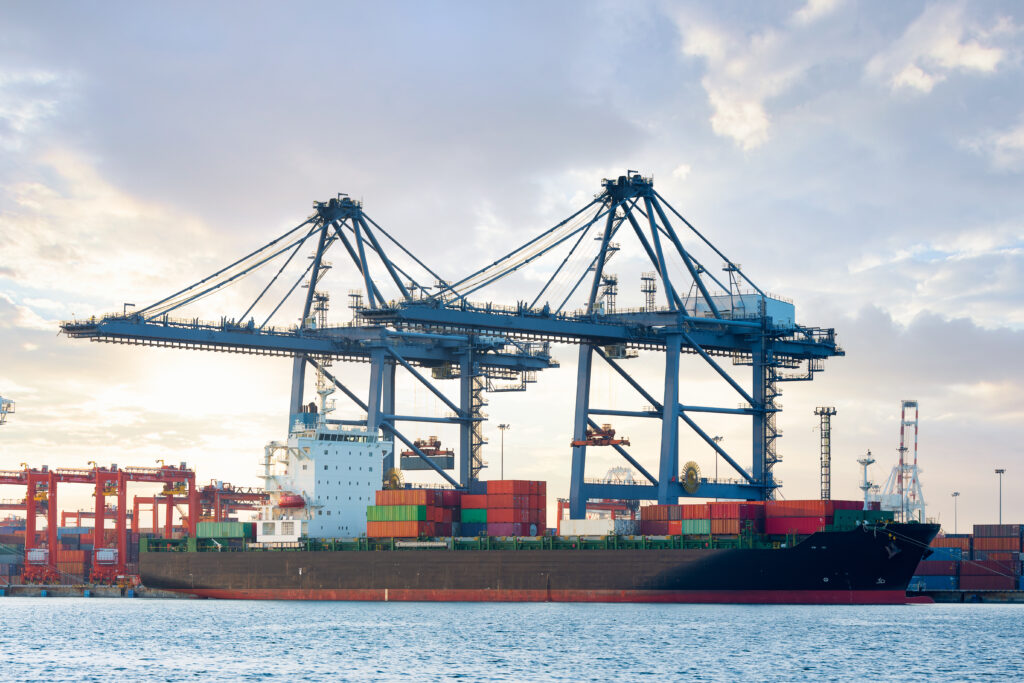Luckily, Santa uses air cargo for delivery of his presents as international sea cargo experiences new delays, both in the use of the Panama Canal and in movement through the Red Sea and the Suez Canal.
While the experience gained by industry during the COVID-19 pandemic has been invaluable in assisting with interruptions to sea cargo routes, the challenges posed by the current problems are of a different kind, with no immediate prospect of resolution.
Issues at the Panama Canal
The problems with passage of vessels through the Panama Canal arise from the ongoing drought in the region which has reduced the volume of water in the Canal. This has numbers and types of vessels which can use the Canal, leaving some vessels unable to use the Canal, leading to additional charges being imposed on those vessels who are permitted to continue to use the Canal.
Issues in the Red Sea
The interruption to the use of the Red Sea and Suez Canal are more substantial and can be traced to the current conflict in Gaza. That conflict appears to have caused Houthis rebels in Yemen to attack vessels, both military and commercial, in the Red Sea. To date, one vessel has been hijacked and others have been subject to attack by drones and anti-ship missiles. The attacks have forced some of the world’s biggest shipping and oil companies to suspend transit through one of the world’s most important maritime trade routes. This could potentially cause a shock to the global economy. There are fears that their attacks could escalate Israel’s conflict against Hamas into a wider regional conflict. Obviously, any escalation of the conflict will create even more uncertainty and delays into the shipping supply chain.
The risks associated with using the Red Sea has forced shipping lines to largely reroute their vessels around Africa’s Cape of Good Hope to avoid the Red Sea and transit via the Suez Canal.
The interventions against shipping in the Red Sea have also led to the United States to establish a naval task force with aligned nations (known as Operation Prosperity Guardian) available to escort shipping through the Red Sea. However, that is not always a practical option for many shipping lines whose options to move their vessels in the region are reduced to choosing between taking longer, often more expensive, voyages away from the area of conflict, awaiting military escort, risking passage through the Red Sea without escort and terminating the voyages altogether. For the time being, re-routing of vessels with additional costs and delays appears to have been the main response.
Details of delays and additional charges have been summarised by the International Freight Forwarders and Customs Brokers Association of Australia, available here.
Further, there are reports that some shipping lines have invoked ‘force majeure’ clauses, by which they can terminate their voyages and return to another port without liability to those who had consigned their cargo to that shipping line for that voyage.
These interruptions to the passage of vessels through the Red Sea have immediate consequences for those involved in the movement of cargo on vessels through the area. These include the following issues for freight forwarders and licensed customs brokers:
- Reviewing proposed bookings on vessels intended to pass through the region and determining the best means for ‘safe passage’ through the region.
- Advising clients on the increased costs and delays which will be imposed on those passing through the region and that such delays and costs will be apply to their cargo.
- Advising clients affected by the shipping lines having invoked ‘force majeure’ clauses on the consequences of ‘force majeure’ having been invoked. Those consequences include delays and costs and the availability of other shipping options once the vessels have arrived at a safe port. In those cases, freight forwarders should be invoking their own ‘force majeure’ clauses in their trading conditions.
- Keeping clients advised on developments as soon as practicable once they arise so that informed decisions can be made without undue costs and delays. Advising clients to inform any end customers of the increased costs and delays and that the customers will also be liable for the costs of such delays and additional charges.
The international supply chain is always subject to external effects which cannot be anticipated at the time that passage on vessels is booked and planned. Members of the supply chain industry should review their contingency plans for the current events, advise clients of the delays and additional risks and promptly take action to expedite movement of cargo and reduce delays, costs and risks.
Contact us
If you would like to discuss any aspects of the new interruptions to sea cargo, or assistance in addressing any current trade or supply chain issues your business is facing, please contact a member of our Customs & Trade team.
| Disclaimer: This publication contains comments of a general nature only and is provided as an information service. It is not intended to be relied upon, nor is it a substitute for specific professional advice. No responsibility can be accepted by Rigby Cooke Lawyers or the authors for loss occasioned to any person doing anything as a result of any material in this publication.
Liability limited by a scheme approved under Professional Standards Legislation. ©2023 Rigby Cooke Lawyers |
